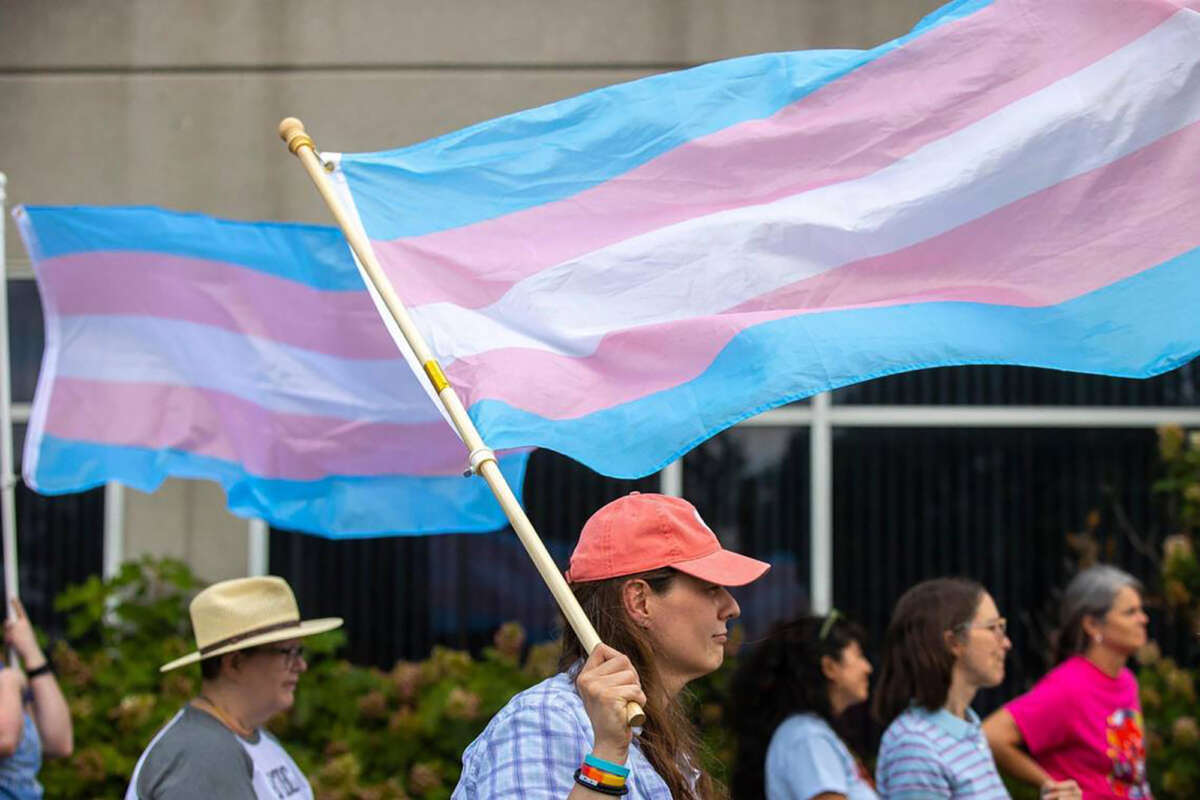Support justice-driven, accurate and transparent news — make a quick donation to Truthout today!
On Friday, a St. Louis judge denied a preliminary injunction in a lawsuit, brought by the American Civil Liberties Union (ACLU) and Lambda Legal, seeking to block Missouri’s ban on gender-affirming care.
As of Monday, transgender youth in the state will no longer have access to gender-affirming care and transgender people who are incarcerated or on Medicaid will be forced to medically detransition.
“This law will harm transgender Missourians, their families, and their medical providers while adding inequities to a healthcare system already ripe with discriminatory laws and practices,” the ACLU of Missouri said in a statement.
The judge, Judge Steven Ohmer, said in his two-page order denying the preliminary injunction that petitioners did not prove there was a threat of irreparable harm if the court did not intervene to block the law. However, a recent study conducted by the Trevor Project has found that 65 percent of transgender and nonbinary young people across the country who were on gender-affirming hormones were somewhat or very concerned about losing access to this care. Additionally, nearly one in three LGBTQ youth said their mental health was poor most or all of the time due to anti-LGBTQ policies and legislation.
Judge Ohmer also stated in his order that “the science and medical evidence is conflicting and unclear.” However, more than a dozen studies consistently show that gender-affirming care is associated with better health outcomes and that lack of access is associated with higher rates of depression, self-harm and suicide. Additionally, major medical organizations, including the American Academy of Pediatrics, the American Academy of Child and Adolescent Psychiatry, the American Medical Association and the American Psychological Association have published statements endorsing gender-affirming care for transgender and nonbinary youth.
The state invited outspoken “detransitioners” — people who formerly identified as transgender but later detransitioned — as witnesses, including California-based Chloe Cole, who travels across the country to advocate against gender-affirming care. Research suggests that only 1 percent of transgender people regret transitioning and that gender-affirming care can be lifesaving for many trans people.
Another witness for the state, Jamie Reed, is a former employee of the Washington University Transgender Center at St. Louis Children’s Hospital. Reed stirred an investigation into the center after publishing disputed allegations that have since been debunked.
“[Missouri’s gender-affirming healthcare ban] is not about improving patient care in Missouri; it is about preventing people from being transgender,” the ACLU of Missouri said in a statement. “The law is rooted in discrimination as it would deny evidence-based, necessary, and often lifesaving medical care to transgender people while allowing a non-transgender person to obtain the same treatment.”
In addition to endangering transgender youth in the state, the law’s implementation will have dire consequences for some transgender adults, including those who are on Medicaid and those who are currently incarcerated. Because trans people face discrimination and a lack of legal protections, they are twice as likely to live in poverty as cisgender people and are overrepresented at every stage of the criminal legal system. In 2022, 9,500 transgender adults were enrolled in Medicaid in Missouri. Due to this order, they will no longer have access to gender-affirming care.
While there is no data documenting how many transgender people are currently incarcerated in Missouri, it is estimated that nearly 5,000 transgender people are incarcerated in state prisons across the country.
“Some people might say: ‘We don’t really care if you’re happy — you’re in prison; you should suffer,” Jessica Hicklin, a transgender woman who sued Missouri over a lack of access to gender-affirming care while incarcerated, told Out In STL. “[But] It’s like Maslow’s Hierarchy of Needs; if you don’t take the time to treat trans folks and their health care needs, you can never rehabilitate them…I was doing good things [in prison] — I was trying to — but after this point I’ve been able to hopefully contribute remarkable things to the world. You can’t expect people to come home and contribute to society if you’re not willing to give them access to medical care.”
Legislative attacks on incarcerated transgender people have been called a “canary in the coal mine” by Richard Saenz, the criminal justice and police misconduct strategist at Lambda Legal. The attacks on gender-affirming health care for transgender youth, incarcerated people and people living in poverty are testing grounds for further attacks on LGBTQ lives, he said.
Press freedom is under attack
As Trump cracks down on political speech, independent media is increasingly necessary.
Truthout produces reporting you won’t see in the mainstream: journalism from the frontlines of global conflict, interviews with grassroots movement leaders, high-quality legal analysis and more.
Our work is possible thanks to reader support. Help Truthout catalyze change and social justice — make a tax-deductible monthly or one-time donation today.
